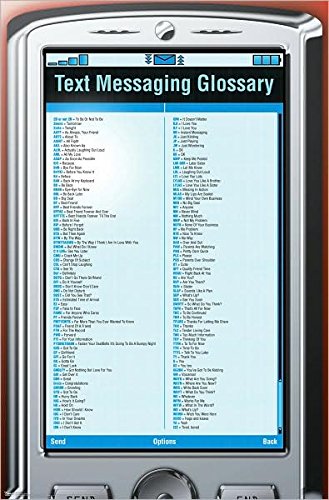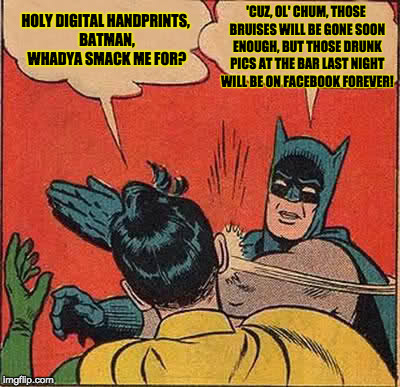The Following "Words" Should Never Be Used on School Assignments:
 |
| Poster image property of BEYONDTHEWALL / Trent Graphics |
In my classroom I have the title above as a caveat placed above this poster. George Jones, in his December Edudemic 2016 article "How Does Social Media Slang Affect Learning?" has an abridged list of these text abbreviations at the end. He lists arguments for and against using texting abbreviations on school assignments, but ultimately agrees with me. By putting this poster up in my room it is obvious that I do not support using them, but let's look at the arguments.
Slang, be it digital or otherwise, is used by everyone, and we adults sometimes think the kids have a language of their own (get off my lawn!) According to the article, 73% of teenagers own a mobile phone and 91% of them are using that phone for text messaging. Let's face it, in a world where we are limited to 140 characters to express a complete thought in social media anyone who uses a mobile device for messaging is going to make the most effective use of that real estate. The problem is that to do so you sacrifice spelling and grammar, and if you are unfamiliar the slang itself doesn't make sense. When students use this slang and text abbreviations on school assignments, a lot of teachers are going to be confused about what is being read and therefore may possibly give that student a bad grade.
I used to work in an urban middle school. Rules on this varied from teacher to teacher, but many were lenient on spelling and grammar so that students would not feel inhibited from creatively expressing themselves. I am all about being creative and expressing oneself, and I also teach technology so I am somewhat familiar with the mumbo-jumbo used in text messages and social media. I have also used a few myself, and it is also not uncommon to hear someone using the abbreviation "LOL" as an actual word in real conversation. But my argument for using proper spelling and grammar is that I am trying to prepare students for high school and (hopefully) college and the workplace, where proper grammar and presentation is going to be scrutinized. And let's face it, who is more likely to be hired for any kind of job, blue or white collar, the person who appears not being able to write effectively because their application is filled with nonsensical text abbreviations and slang, or the person who can write and express themselves effectively using proper grammar and spelling? I'm leaning towards the latter.
Does slang harm writing skills? Well, it depends on the context. If you are writing a story in which conversational English is necessary to show point of view or emotion or character conversation, well then no, it doesn't. But I would also make the argument that you shouldn't break the rules until you know what they are. I had a fantastic art teacher in high school who used to tell us all the time that rules (in art) are there to show you how things are supposed to work, but HOW you break them shows how you are being creative to make something interesting. I believe that proper grammar and spelling should be taught and encouraged, but I also know that as a teacher I need to adapt, not only to technology but to society as well. Is it okay to break the rules? Well, only when the situation calls for it. Knowing the rules and knowing when AND why to break them is what needs to be addressed in this tech age when the situation may call on you to LOL while laughing out loud :)


This is a debate that we'll have for years to come! I have seen plenty of conversations on if spelling should still be taught in schools so "text slang" is also relevant to the discussion. In the end I do believe that this type of writing has its place, such as proper english does. We should be teaching students how and when it is appropriate to use.
ReplyDeleteWhat's funny is I actually had a student one time ask me how to spell LOL... :)
Delete